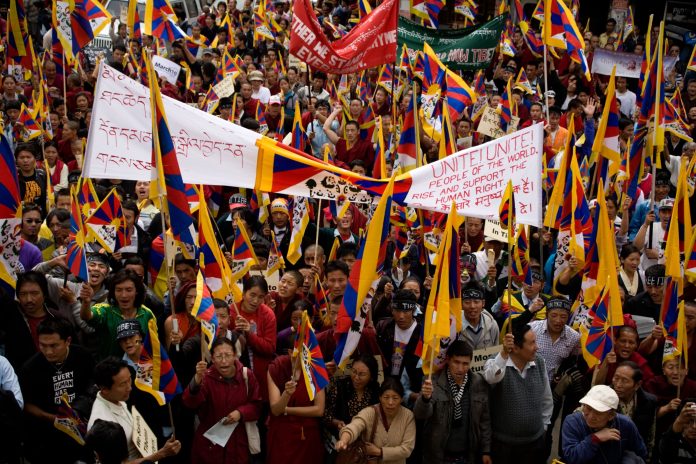Tibet Uprising Day, observed annually on March 10, holds deep significance for Tibetans and supporters worldwide. It commemorates a pivotal moment in Tibetan history—the 1959 Tibetan uprising against the presence of the People’s Republic of China in Tibet.
The Historical Context
The Spark of Resistance
On March 10, 1959, thousands of Tibetans took to the streets of Lhasa, the Tibetan capital, to protest against the Chinese occupation. Their peaceful uprising was a courageous stand against the repression and cultural assimilation imposed by the Communist Chinese regime.
Women’s Uprising Day
Just two days later, on March 12, 1959, Tibetan women joined the movement in what became known as the Women’s Uprising Day. Their participation demonstrated the collective determination of the Tibetan people to safeguard their identity, religion, and way of life.
The Brutal Suppression
The Chinese authorities responded with force. The Chinese army quashed the rebellion, resulting in a violent crackdown. Thousands of Tibetans lost their lives, and the spiritual leader of Tibet, the 14th Dalai Lama, had to flee into exile. Disguised as a soldier, he escaped to India on March 19, 1959.
Broken Promises
The uprising also marked the end of the 1951 Seventeen Point Agreement, a Sino-Tibetan pact that promised to respect Tibetan customs and beliefs. However, the Chinese invasion shattered these promises, leading to a struggle for independence and cultural preservation.
Ongoing Struggle
In recent years, Tibetan Uprising Day has continued to resonate. In 2008, protests erupted in Lhasa, followed by a nationwide uprising across Tibet. The Chinese authorities responded with brutal repression, isolating the Tibetan Autonomous Region and suppressing Tibetan culture and religion.
International Observance
Tibetan Uprising Day is not only remembered by Tibetans but also by supporters worldwide. The Central Tibetan Administration, governments, organizations, and individuals who champion religious and cultural freedom stand in solidarity with Tibet. Protests, campaigns, and statements draw attention to the ongoing struggle for justice and autonomy.
As we mark this day, let us honor the resilience of the Tibetan people and reaffirm our commitment to their cause. Free Tibet!


